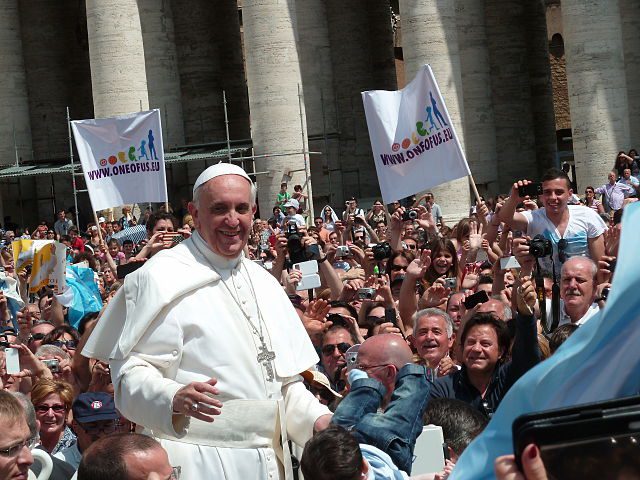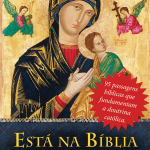***
[someone asked me about this, and I answered; and add many more thoughts presently]
I think Pope Francis says confusing things sometimes (and too many times), yes. “Germanic” Pope Benedict-like or Aquinas-like articulation and concision is not his high suit. He has other gifts (ones also sorely needed in the Church). I also think that he has been misinterpreted, times without number. I know, because I’ve chronicled and written about many instances where this occurred, and have shown how his critics were seriously in error (including a book on that topic).
There is now an entire cottage industry of folks systematically bashing the pope, which I will not allow on my web pages, because I feel that it is 1) unseemly, 2) scandalous to the outside observing world, and 3) spiritually dangerous to my readers. Many these days seem to care not a whit about these sorts of concerns. I do. And they should.
Pope Francis could possibly have been in error in private statements (there are a few that I myself have a problem with). It’s not inconceivable for a pope to do that. The sky won’t fall down if he does. He is protected by the Holy Spirit only from binding Catholics to false teaching in magisterial statements.
But the latter scandal / crisis has never happened, as we saw illustrated again in the recent controversies over Amoris Laetitia. The document was perfectly orthodox and in accord with prior Catholic teaching.
What was mostly argued about, regarding Amoris Laetitia, was one mere footnote. Several high-ranking, important Cardinals later repeatedly clarified that it represented no change at all in Catholic doctrine or practice.
Any Catholic who lives day-to-day and moment-to-moment, hanging on the Holy Father’s every word (almost all of them non-magisterial), needs to get a life, and get on with their own spiritual development, and learning the faith on their own. We all have personal responsibility to learn our faith. We don’t have to be spoon-fed (like helpless babies) by the pope every hour.
I was an evangelical Protestant from 1977-1990, before being received into the One, Holy, Catholic, and Apostolic Church. I’ve often noted since then, that the pope’s day-to-day direct influence on our practical lives is considerably less than the influence of the average pastor over the lives of his congregants. Ironic, but very true . . .
In the old days, folks would mostly read a papal encyclical (if that). They weren’t constantly bombarded 24-7 by the endless information (including tons of sinful gossip and innuendo) of social media. So they didn’t have a minute-to-minute account of every word the pope says, or eyewitness accounts of what color socks he is wearing today or what brand of tissue he used to blow his nose. You get my point, surely . . .
Blessedly, the Church has never taught that absolutely every word the pope says is infallible. The quite limited instances of infallibility are very carefully laid out by the Church. There is the ordinary magisterium, too (that goes far beyond ex cathedra statements), but we need not get into all those finer points in order for my present point to be understood.
In summary, it is not my opinion (nor has it ever been in my 25+ years as a convert and apologist) that every word the pope utters or writes is infallible or error-free. I’m accused of that, of course [Yawn], by reactionaries (with silly epithets like “ultramontanist” / “papolater” etc.), because every papal defender is. It’s the oldest trick in the book to caricature theological opponents of any sort, and to create straw men as to what they allegedly believe. Don’t believe the nonsense. As to my own opinions, I am telling you straight — as I always do — what they are, and they are no different than they have ever been.
Nor do I (like my friend Thomas Hunt seems to believe) think everyone who criticizes — or even “bashes” — the Holy Father is a radical Catholic reactionary. Many “loudmouthed” folks who do that, indeed are reactionaries (Skojec, Ferrara, Hilary White, Michael Matt et al), but many also are not.
Some of the criticism comes from legitimate traditionalists; some from those who are simply non-traditionalist orthodox Catholics, like myself. But almost all of it that I have seen, wherever it comes from, is (again): 1) unseemly, 2) scandalous to the outside observing world, and 3) spiritually dangerous.
This last factor is also very poorly understood. Even if our objections are perfectly legitimate and worthy of attention and concern, it’s another question entirely, whether they ought to be aired in public, with the whole world watching. I say they should not. Why does everything have to be public, these days? And that gets back to the ubiquity of the social media and how the devil exploits this state of affairs: manipulating and influencing (Screwtape-like) the usual foibles and shortcomings of human nature.
I think some of the papal criticisms (such as those by respectable non-reactionaries) have at least partial or occasional validity and legitimacy. That’s one thing. Whether they should be aired publicly and instantly for one and all to see (as if they are themselves profoundly authoritative and sublimely momentous and helpful to one and all), is quite another issue. I say that they shouldn’t, and it would be quite easy to find lots of quotes from saints and Doctors of the Church to back up my point (but I’ll spare my readers that).
On Facebook, all one would have to do to follow this approach is restrict such material to a smaller, private list of Catholic friends (or even the now-antiquated and quaint e-mail discussion list). How hard is that? Regular websites usually have no such settings, so material of this sort is out in public for any mocking anti-Catholic or atheist to read: all of these internal Catholic squabbles and countless examples of almost frantic “Francis anxiety” that so many today are exhibiting (or even arguably or actually legitimate concerns, as I noted above, that still ought to be expressed privately). It’s all out there right now, since hardly anyone seems concerned with issues like seemliness, propriety, prudence, etc., as regards what it is proper for Catholics to talk about in the general public, as opposed to our own private discussions. With social media, the private / public distinction is now virtually obliterated.














